

Words matter. The right words can inspire. The wrong ones… do otherwise.
The way a person talks does more than tell you who they are, it also reflects how they think. In Burden of Command, the members of your company will talk differently if they are aggressive, wary, friendly, or under mental strain.

Units with high morale will react calmly and rationally under fire.

Units with low morale… won’t.
We try not to put words in the Company Commander’s mouth. Outside of simple “yes sir”s and “no sir”s, it is important that the vast majority of words that the Company Commander says are chosen by the player verbatim.
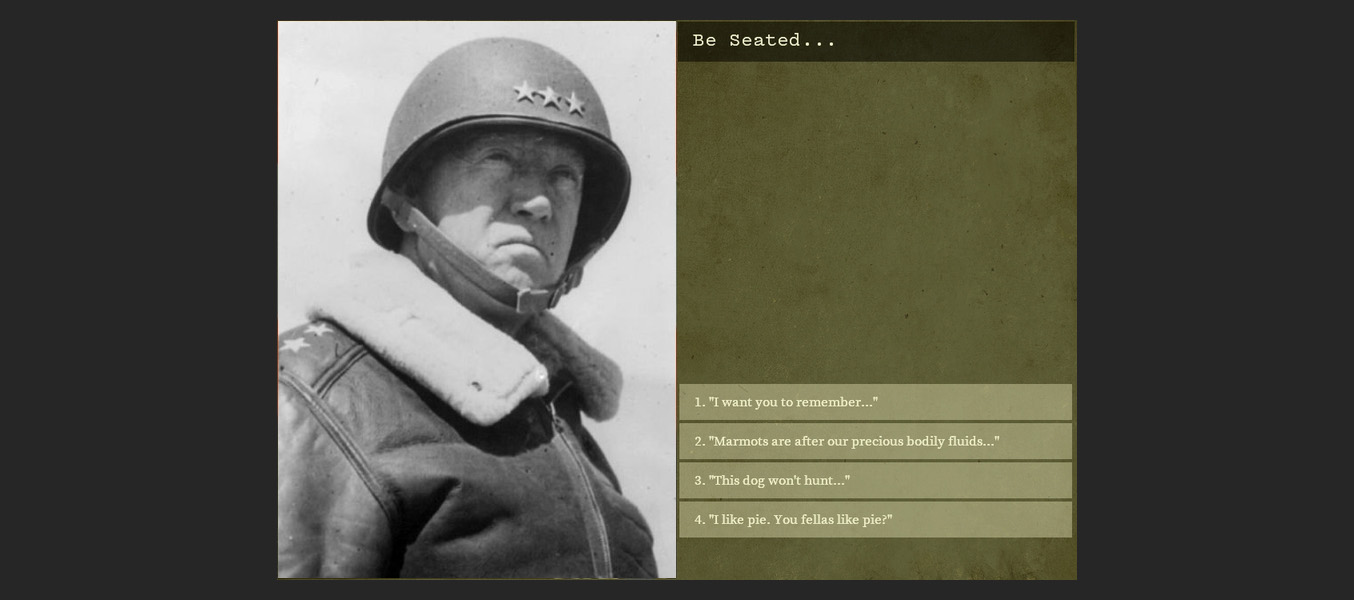
Now imagine doing the whole damn speech like this.
This works great for back-and-forth dialogue where participants volley sentences or sentence fragments. Conversations involving exposition or longer passages are a bit harder. A sequence where the player character speaks for minutes on end, like General Patton did in the above scene from the 1970 film? That sort of thing is almost impossible.
So naturally, we decided there had to be a scene where the Company Commander does precisely that.
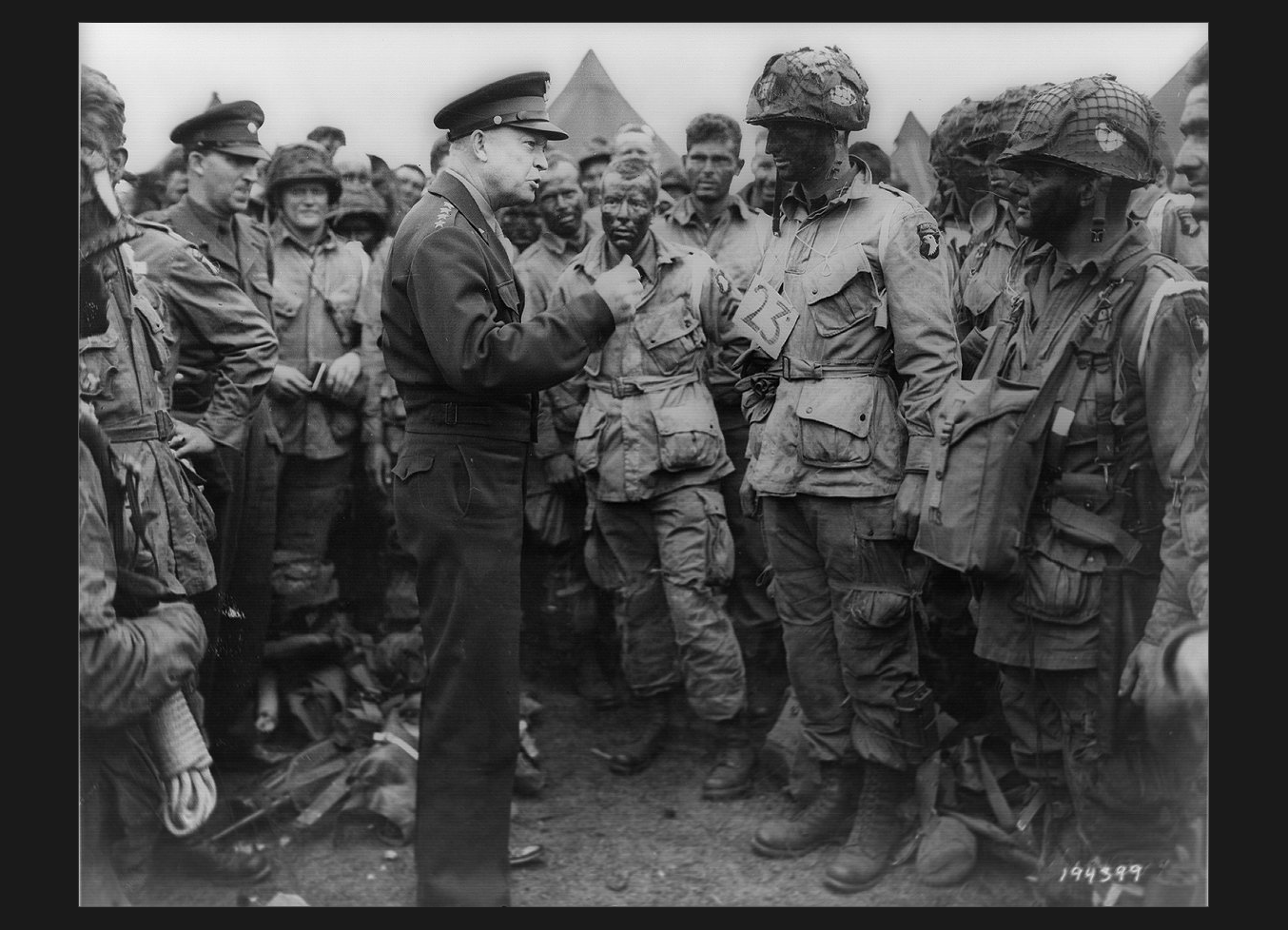
Here’s Ike addressing some of his men just before they go into battle. Burden of Command will let you follow his example.
It would have been easy to simply write a selection of canned speeches for the player to choose from, but that would have also been antithetical to the idea of letting the player choose what to say. Instead, I looked at an example from Bioware’s Mass Effect series for inspiration. Early in the first game, your player character, Commander Shepard, has the opportunity to give a speech to their crew. The player takes Shepard through this process sentence by sentence. The choices the player makes during this segment influences Shepard’s “Paragon” and “Renegade” personality meters, to represent Shepard “revealing” their inner biases and worldview.
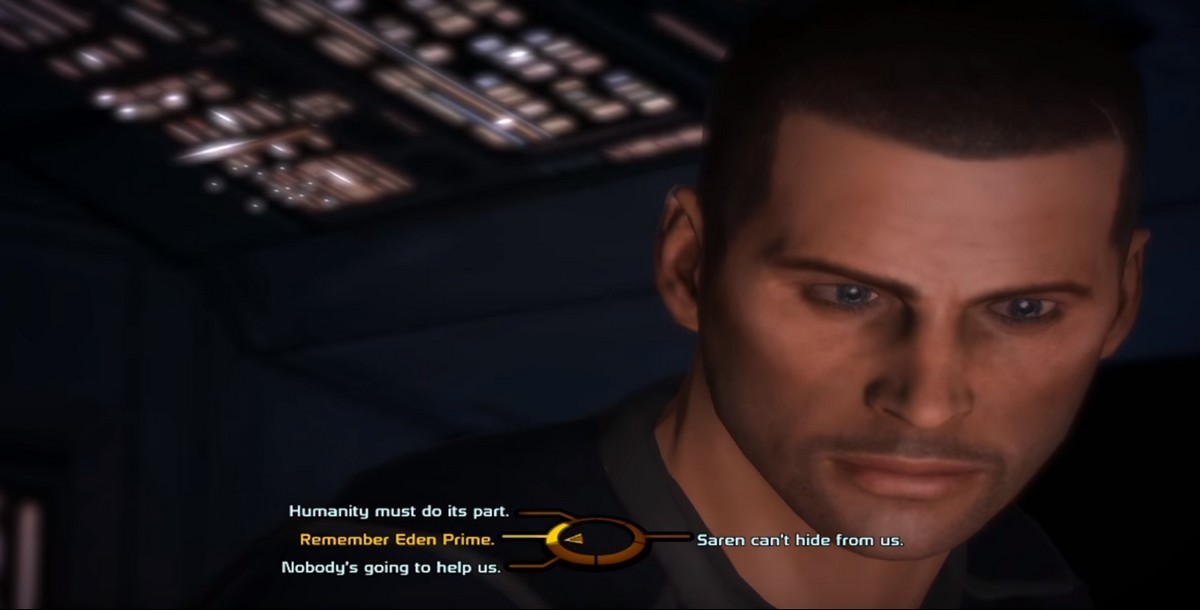
Burden of Command takes those principles and goes further. When the Company Commander addresses his men, your choices influence his character. For example, you might choose to open with a sardonic quip and that pushes the Company Commander towards higher sarcasm. However, the Company Commander’s personality, as established through previous choices (Sarcasm, Verbosity, and Directness), also pushes back against the player’s choices. If you choose speech options that don’t match the Company Commander’s personality, your words might not go over as well: public speaking is particularly difficult when you don’t believe the ideals you’re selling.
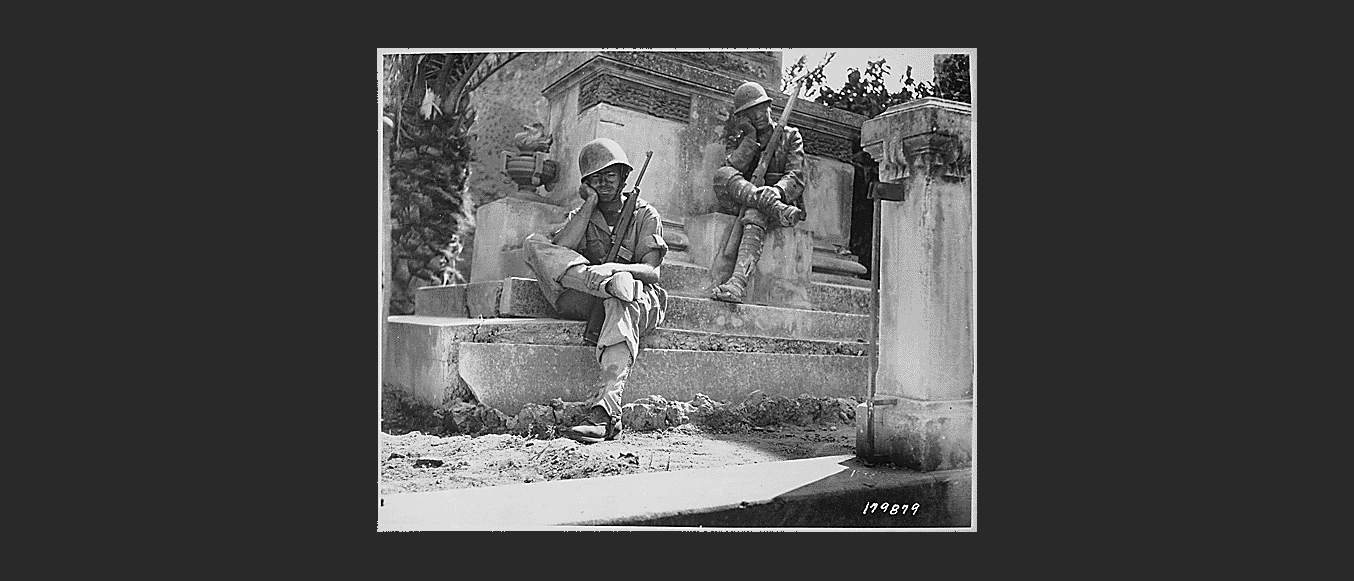
When you finish talking, you don’t want your audience looking like this.
Based on the player’s choices, the Captain’s speech might prove genuinely inspiring.Or it might fall falt, demoralising his company just moments before they have to risk their lives in combat.
Choosing the right words for the occasion, and making sure that you and your men believe what you’re saying, that too is part of the burden of command.
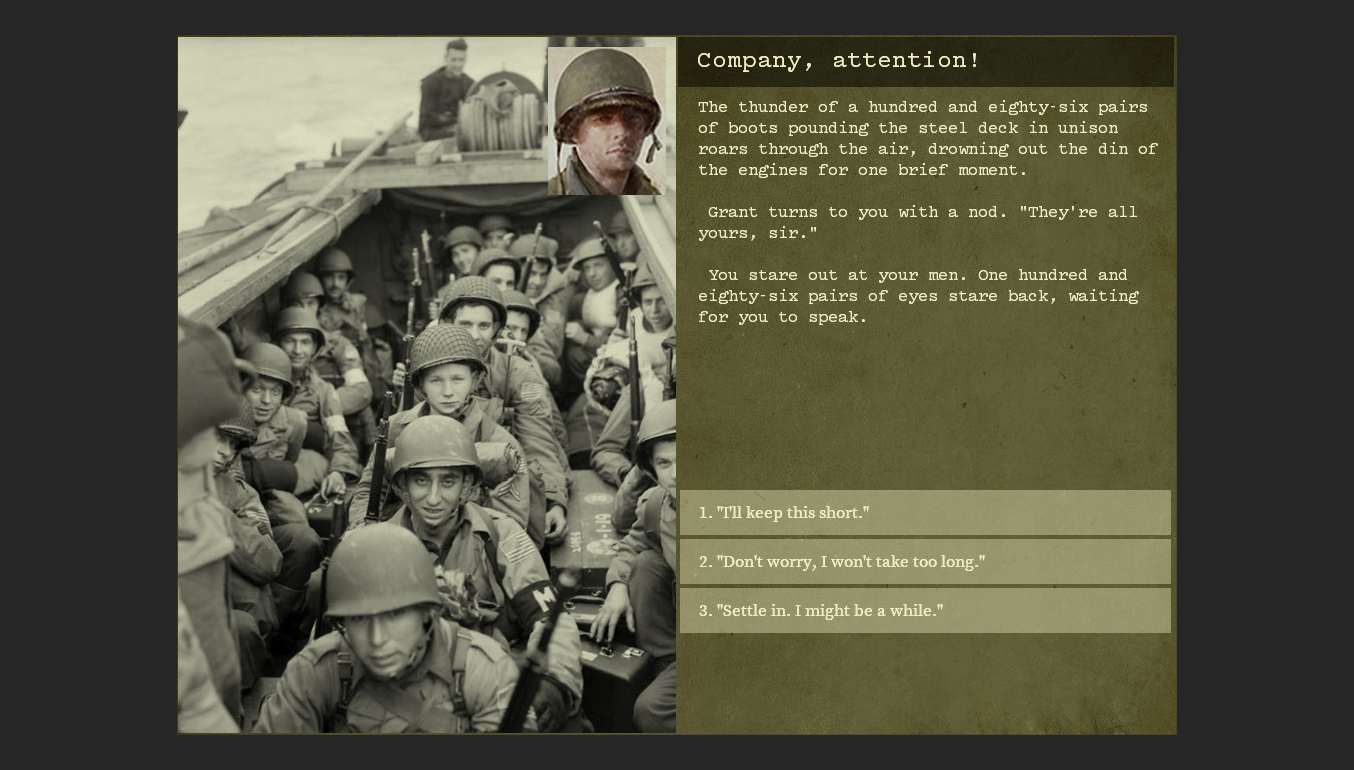
On the eve of battle, the men look to you for reassurance. How will you respond… Captain?
| Follow @BurdenOfCommand |
Pingback: The Flare Path: A2Z | Rock Paper Shotgun
Cannnnnot wait for this game! Really late finding out about this, which is good as hopefully it is close to being released and I will not have long to wait! Looking forward to supporting this as much as possible!
Thank you so much! Sorry not to reply earlier. We get a lot of spam attacks (like all websites) so sometimes the real messages get lost in the shuffle. Spread the word if you want to help!
Luke (lead)
As a former soldier and leader, I look for content and hidden meaning in the words of my leaders. After a while, you really get to know the double-meanings, the leader’s wit and sarcasm, etc. Unfortunately, that very first “talk” with your men sets a tone. Personally, I find humor and self-deprecation works wonders, and endears leaders to the led. It is a fine line, though, between “endearing” and “familiar”. Keeping that endearing quality while never allowing it to crossover into a familiar relationship with the men is important. They still need to know that you are there to lead them, not be their pal. Kind of like being a parent to a teenager, IMHO.
Thanks Curt! Yeah very tricky not being their ‘buddy’ but still being someone they can talk to. Look forward to having more of such insights from you as a playtester!
Luke (lead)